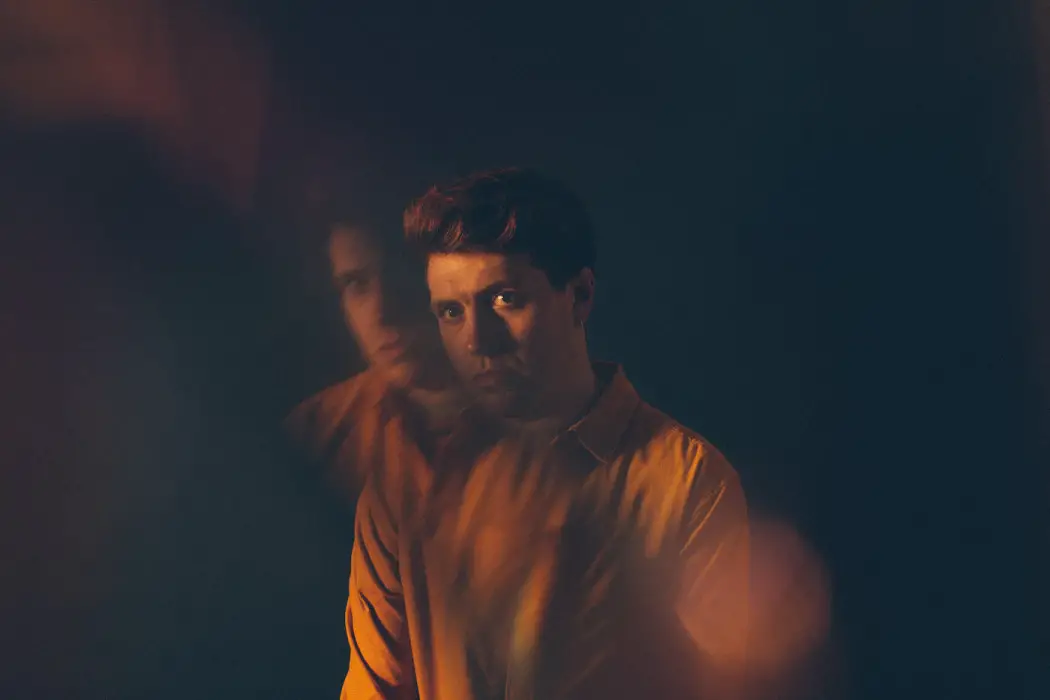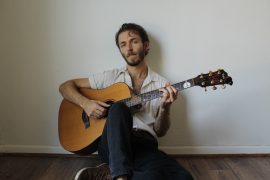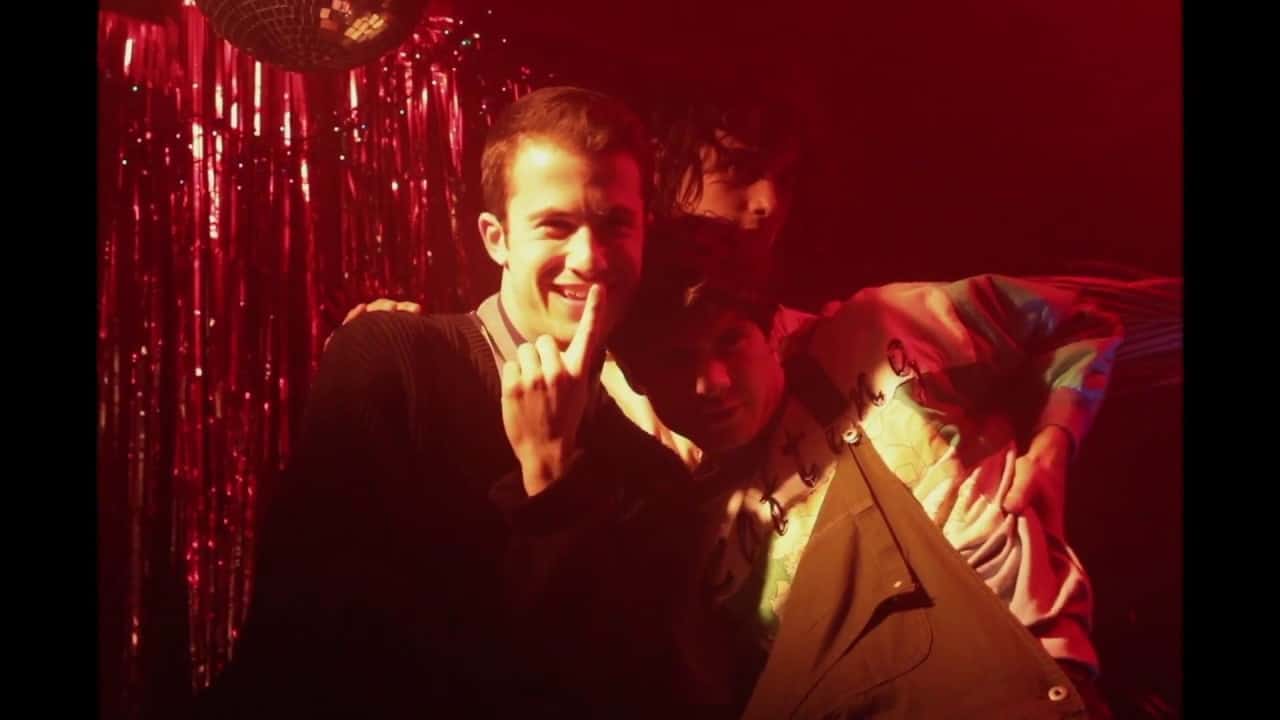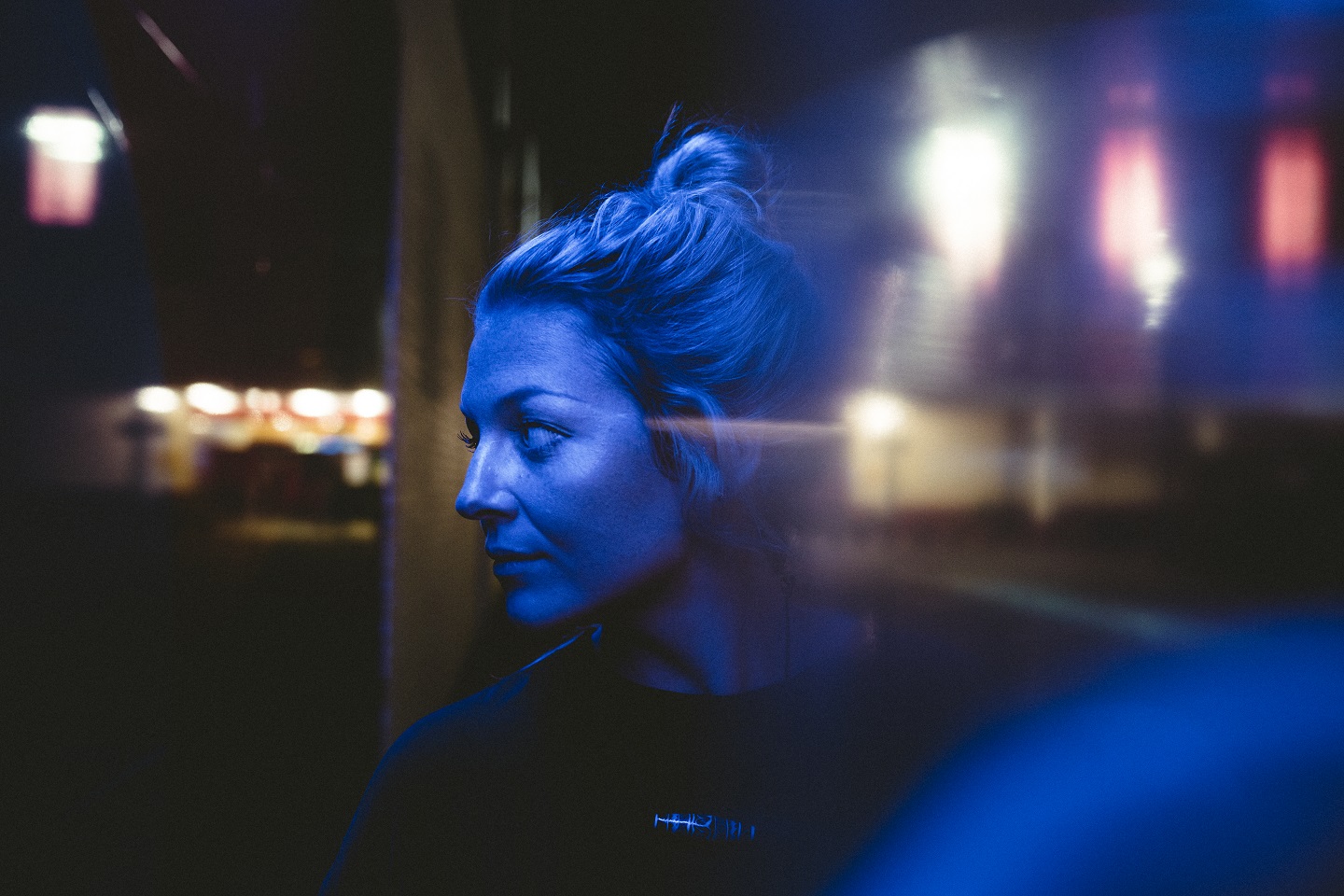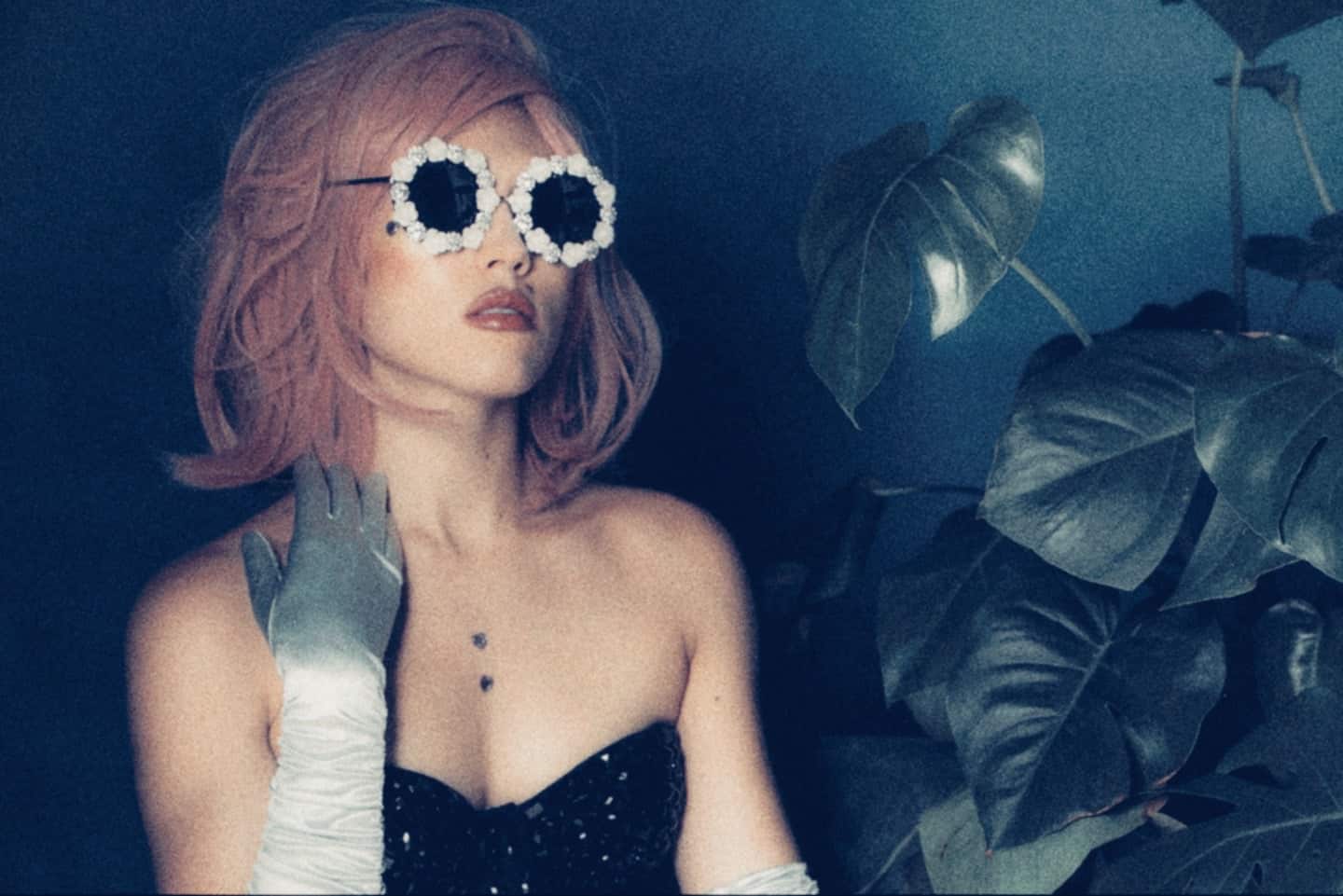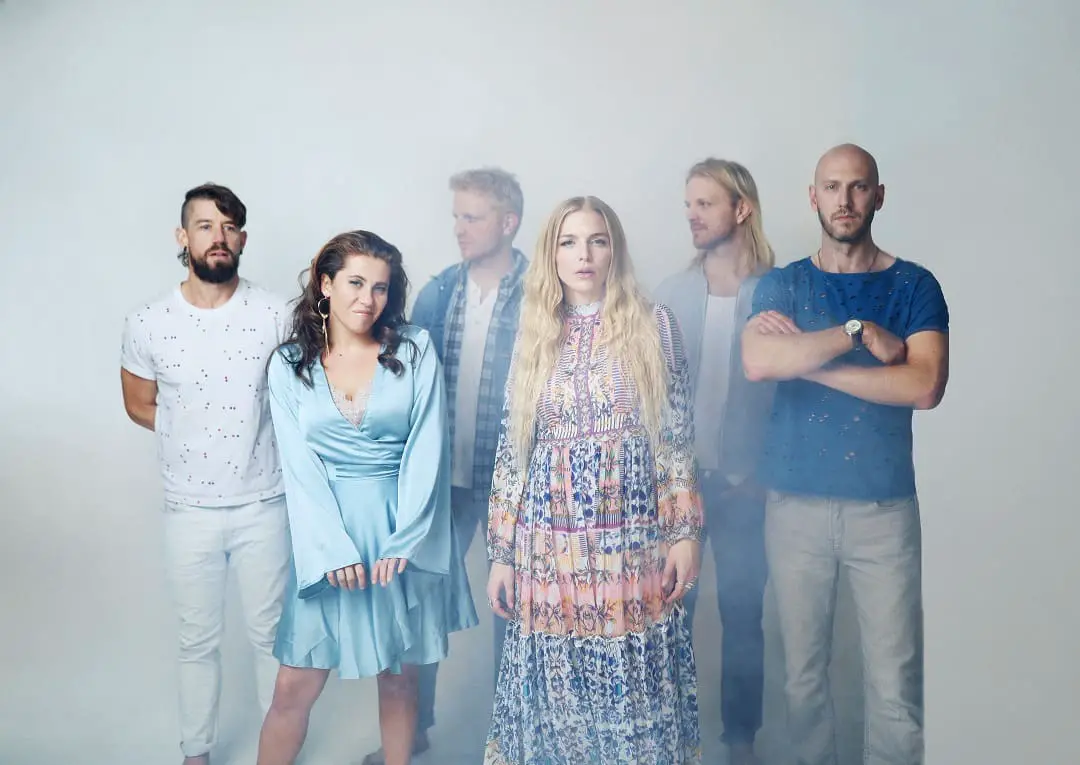Atwood Magazine spoke with Plested about co-writing huge hits, striving for relatability while staying true to yourself, his latest single “Either You Love Me or You Don’t” & more!
“Either You Love Me or You Don’t” – Plested
Saying that Plested has had a busy year is an understatement of epic proportions. As well as supporting the likes of Maisie Peters, Nina Nesbitt, Alec Benjamin and Mogli on tour; he’s also supported huge names like Emeli Sande and Calum Scott at special one-off shows. Just a single listen to any of his tracks makes it extraordinarily easy to hear why he’s in such high demand.
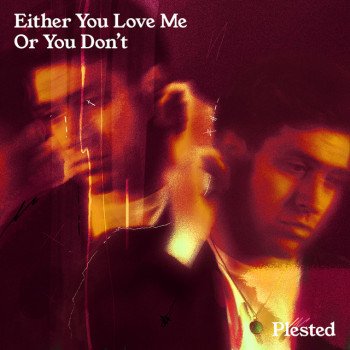
Atwood Magazine previously included Plested’s tracks in multiple Weekly Roundups and delved into his outstanding debut project First & Foremost in a track-by-track review, describing it as “distinctly dazzlingly while still delving deeply with exceptional level of authenticity into the complex vulnerabilities and feelings that often serve as a fundamental part of life’s most defining moments.”
Eager to capitalise on the success of his debut project, this April Plested unleashed friendzone anthem “Either You Love Me Or You Don’t” to his ever-growing fanbase. While the track’s title is unquestionably direct, as always Plested’s astonishing lyricism manages to capture the bewildering multitude of emotions that can make up one single feeling. Despite his deeply authentic lyricism, “Either You Love Me Or You Don’t” is an unashamedly craftily catchy pop song, that’ll prove instantly relatable to literally anyone who’s ever experienced an ounce of uncertainty at the start of a relationship.
Atwood Magazine spoke with Plested about co-writing huge hits, striving for relatability while staying true to yourself, his latest single “Either You Love Me Or You Don’t” & more!
I think it’s important in music to take a step forward sometimes; you don’t want to have the same sound all the time.

A CONVERSATION WITH PLESTED
Atwood Magazine: You’ve co-written on so many songs that I adore like “I Won’t Mind”, “Fire in Me”, “Certain Things” and “Hollywood.” How would you describe a typical writing session? And how much does that process vary between working with different songwriters and artists?
Plested: I think every session is slightly different. I find that best thing to do is you go into the room, with whoever it may be, even if I’m just writing by myself, and I think it’s important to just like not necessarily start writing straight away. But to like, just have a conversation, for example with Lewis Capaldi, he came to the studio and it was me and a couple of mates. Then we just sat down for a bit and, you know, caught up. I want to know what’s going on in his life and tell him what I’m going through. Then see if there’s any kind of like correlation on what we can write about.
Some sessions you just write a song in 15 minutes and you just wonder where it even came from. I think it’s important just to have fun with it; it’s a hobby at the end of the day and you don’t want to turn into a chore. So we just kind of hang out, see what happens. No pressure.
You’re still releasing demos on your YouTube channel; I loved “Single Bed” and “Different People” as well. How does it feel as a songwriter to be sharing those and getting a reaction before there’s a finished version? What was your thought process behind it?
Plested: Well, for me, I think it’s always important to kind of show people my journey because I obviously talk about the songwriting side of things a lot. I think to talk about that and then just to release completely finished songs means there’s kind of like a big gap in between. So I thought it would be nice as part of the story just saying “well, here’s a few songs that like haven’t made it the whole way yet but this is where they stand at the moment” and to get feedback on them.
Because I always say that, it gets to a point where it’s like what do we release next and I think to have a fan base now, which I worked hard for, they obviously know my music, as well as I do, if not better. So if I can show them a few songs, that I’m thinking this is where I could end up, like what do you think of it? And you get amazing, honest feedback that way, which I think is so important.
https://www.youtube.com/watch?v=d2faQMpPgao
You made the transition from writing to becoming an artist. Within that transition, were there any positives or negatives aspects that you didn’t anticipate?
Plested: I think one thing I didn’t take into account at first was how much you have to take social media on board. Songwriting is an amazing thing, if you just want to be behind the scenes. You’re still involved with the industry, but you don’t have to tell everyone what you’re doing every day or have an opinion on everything.
When I started doing the artist thing, my manager was very much like “okay you need to start talking to camera on social media, tell people what you’re up to.” I was just what, I definitely wasn’t ready for that. I’m used to it now, so I do a lot more and I do like Instagram Live and stuff like that; I actually enjoy it now. It’s just fun now but it takes a lot getting used to.
You’ve previously mentioned that “Worthy of You” is about not feeling worthy enough to be in the music industry but for many people, they listen to it as a love song. What’s your take on that disconnect between your intentions as a songwriter and how people may relate to a track?
Plested: I listen to all types of music but what I listen to the most is probably literally the radio. That’s because I do believe that a well-written song pop song is probably the hardest thing to write because it’s specific and there’s so many different rules. What I kind of like to do is whatever I’m writing a song about, whether it’s to do with music or something to do with my family or something like that, I’ll always try and manipulate it, so it sounds like a love song. Or at least, it sounds like something that a lot more people can relate to. Sometimes when you have a song that’s very honest and open about a situation, it’s kind of hard for people to like to connect to that so it’s nice to have something that they can grab on to. So like with “Worthy of You”, it’s quite easy to turn it into a love song if you need it to be.
I’m obsessed with First & Foremost; every single song is just phenomenal. At what point did you land of that sort of apt title for the project?
Plested: Do you know what? Naming things is my worst thing, I never have a clue! It literally takes me forever! We kind of liked the idea of having a theme so you know like with Ed Sheeran or Adele; where they have their theme that they just stay with. We were trying to think around that and then we were just thinking about it way too much. But I just love the idea of saying first, second, third; whatever they may be, like albums or EP’s or whatever.
But for this, I think it was nice to call it first and foremost because, to be honest, it’s just an introduction and I would say the songs on that project are all quite raw and rough around the edges. I think it’s basically saying hello this is Plested and this is what I want to sound like.
I do believe that a well-written pop song is probably the hardest thing to write.
Was it difficult picking the songs and ordering or did it come quite naturally?
Plested: We dropped quite a few songs last year anyway, through 2018 we put out about five or six songs and we just thought let’s finish those up properly, just to make sure we’re happy with them, and then add a couple of extra songs. On First & Foremost, I have a song called “Home By Now”, which is the last song we put on there, and similarly like the other songs it’s quite raw and rough around the edges. We just thought it’s such a nice sentiment to have because all the songs are to do with trying to make it in the music industry, trying to find love and how those things affect each other so “Home By Now” fitted in perfectly with the other songs.
The production on “Either You Love Me, or You Don’t” is in some ways relatively different to some of the other stuff you’ve released and, obviously, drastically different to the acoustic version that Barn on the Farm put up on their YouTube. Was there ever any apprehension or nervousness surrounding its release?
Plested: I was very nervous actually. For a lot of people I was talking to that acoustic version was their introduction to the song and a lot of people fell in love with that version. So I was like really scared. But, you know, I think it’s important in music to take a step forward sometimes; you don’t want to have the same sound all the time. There’s a lot of singer-songwriters out at the moment so I like the idea of having production that steps it forward a bit and makes it a little more pop and in the direction of where I want to go.
When you’ve finished writing a song like “Touch” or “Remind Me to Forget,” do you ever have any indication that they’re going to be a hit and resonate with so many?
Plested: I’m not going to lie, I’m the biggest pessimist on planet earth. Every time I write a song, I never think it’s good until my manager or someone in my team is like “actually, we quite like this one.” Then I’ll listen to it again and be like “Ahh okay, yeah. I see where you’re coming from.”
With “Touch”, I wrote it with a couple of friends, and I didn’t think anything of it; I just put it to the back of my mind. Then a few months later, I got an email from the producer saying like here’s a version with Little Mix on it and I was like “umm okay” and even still after hearing that version I loved it, but I was like there’s no chance this is going to go on the album. So I’m just very lucky, to be honest.
I think the key reason those songs did well is probably because they’re still kind of honest song, and they still come from a place of honesty from me. It’s nice that someone else is singing them, and they’ve sung it from their heart now, and it means whatever it means to them.
https://www.youtube.com/watch?v=vqn-yDdjuJg
Is it still like a surreal feeling to jump into a taxi or whatever and hear a song you’ve written?
Plested: Yeah, I don’t think you ever get used to that. You can ask any writer as well, it’s the strangest feeling. Especially when you’re with your mum. We’d walk into cafes and she’d be like, “Ohh, they’ve got job openings,” and I’m like, “No mum, I have a job.” (laughs) So it’s always nice when she’s like “okay, this is what you do.”
With a song like “Your Name,” I think there’s so much universal power just behind that phrase and I love how it can universally speak to anyone’s break-up or other romantic situation. Is that accessibility or relatability something you purposefully ever aim for as a songwriter? Or you just purely writing for yourself?
Plested: I think that’s the most important thing. It’s great to have a song that comes from the heart but if no one else can connect with it, it’s not necessarily a bad thing, but it’s just if you’re going to a play a gig you might as well write a song that a lot of people can connect to.
I wrote that song in New York and I was really missing someone, so I was like this is perfect, everyone feels that emotion sometimes. It’s such a human thing.
Within your lyricism, there’s like certain lines that are so powerfully impactful, like on Ribcage with “That’s why I call it a ribcage,” or the starting line of “Worthy of You.” At what point during the songwriting process do those lines come to you? Are they often the starting point?
Plested: I don’t know how they come into my head; I get lucky sometimes. Sometimes I’ll kind of go into a session with a line like that. With “Ribcage”, I can’t remember how I came up with that, but I definitely came into the session with that written down, and I just said to the producer “We’re going to write this today”.
But I watch a lot of films as well, if they have good dialogue, I write down ideas then take them into a session. I have this massive long notes page on my phone and if I ever get stuck, I’ll just go through that. 90% of it is a load of rubbish but every now and then there’ll be something where I’m like this perfect. Lyrics are so important to me so it’s always good when I find those lines.
Every time I write a song, I never think it’s good.
When you’re listening to another person’s song for the first time, as a songwriter is it always the lyrics that stand out to you?
Plested: Yeah, it’s definitely lyrics. I always go through New Music Friday on Spotify and if something has a really interesting title, I’ll always listen to that first.
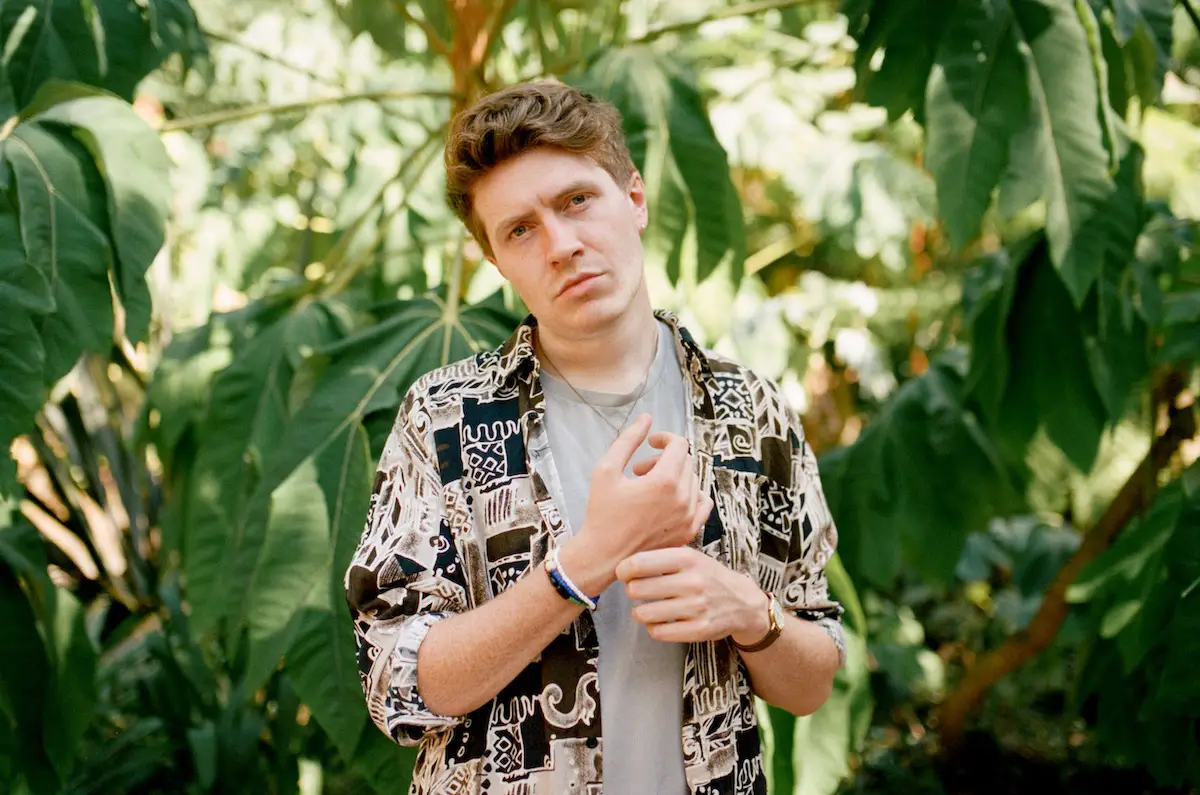
Your headline show at the Lexington looked insane! How was that experience of having so many people sing your lyrics back to you? And was it a different pressure putting on that headline show as opposed to supporting?
Plested: It was the craziest thing actually. I went on a European tour in February and then I did an American tour supporting Nina Nesbitt and I landed back in England then the day after I had the headline show.
Coming from a tour where I was introducing myself, and everything I said between songs was to say “hi, I’m Plested, this song’s about this” and stuff like that. Then to play a show where everybody already knows the songs is insane. I didn’t know what to say basically; I had goosebumps and I was just smiling the whole time.
There was a slight issue of me forgetting the words to my songs, it’s just something that I’ve always done. At any other show obviously no one is going to know that, but then all of a sudden it was like “okay, people are going to know if I forget the words now, so I need to get this right.” I think I still ended up getting some words wrong.
The whole thing was just crazy, I’ll never forget that show at the Lexington, it was amazing.
As an artist and as a songwriter, what’s most important to you and what do you hope to stay true to as you progress?
Plested: I just want to stay as honest to myself as possible. I never really want to release a song that doesn’t mean that much to me; I always want them to be from a place of honesty and what I’ve been going through. As a new songwriter, I think that’s what’s most important to stay true to.
I also just want the quality of my songs to stay at a certain standard. I know it’s obviously based on opinion, but I always want to just release songs that I’m really proud of.
— — — —

Connect to Plested on
Facebook, Twitter, Instagram
Discover new music on Atwood Magazine
? © NOWHERENEAR Records
:: Stream Plested ::

